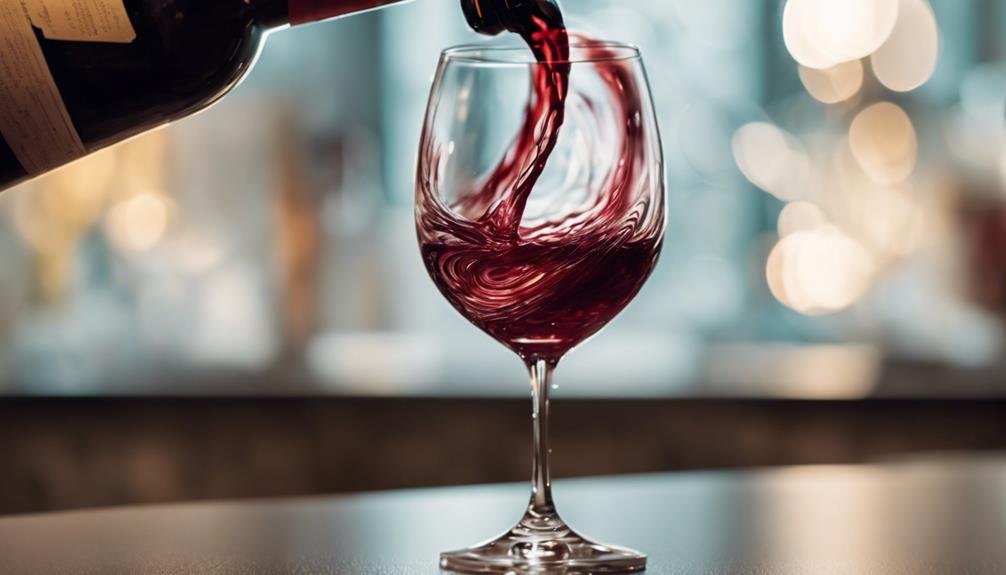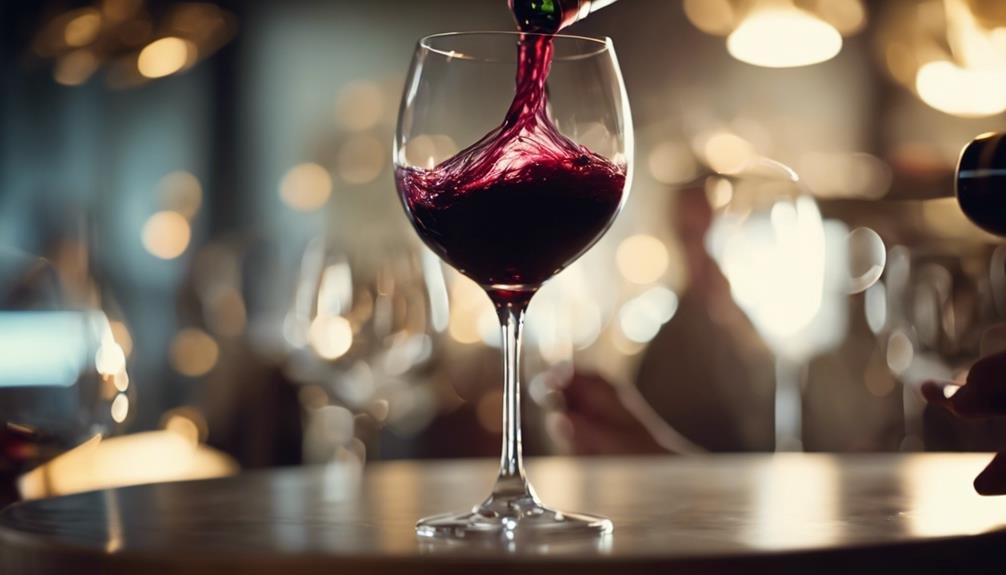Step into the enchanting world of wine tasting, a tradition rich in history and culture. From the ancient Greeks and Romans to modern connoisseurs, the art of wine tasting has evolved, engaging all your senses. Sight, smell, taste, and touch harmonize to uncover the nuances of each sip. Explore grape varieties, winemaking techniques, and sensory experiences to deepen your appreciation. Refine your palate, observe tasting etiquette, and engage in sensory exploration to enhance your understanding of diverse wine flavors. Unravel the secrets behind each pour and reveal the hidden treasures in every glass.
Historical Evolution of Wine Tasting
Throughout history, the evolution of wine tasting has been a fascinating journey marked by significant developments and traditions. Wine tasting has ancient origins dating back to the Greeks and Romans, who elevated wine to a cultural and social status, laying the foundation for modern practices.
Tasting rituals have evolved over time, from simple grape stomping to sophisticated sensory evaluations. In ancient times, wine tasting was a communal activity, symbolizing unity and celebration. As civilizations progressed, tasting rituals became more refined, incorporating specific techniques to assess wine quality and characteristics.
Understanding the historical evolution of wine tasting provides insight into the cultural significance and importance placed on this sensory experience throughout the ages.
The Role of Senses in Tasting
Have you ever wondered how your senses play a significant role in wine tasting? Sensory evaluation is key in revealing the intricate world of wine flavors.
When you engage in wine tasting, your senses of sight, smell, taste, and touch work together to create a holistic experience. Your sense of smell, for example, helps in identifying the aroma and bouquet of the wine, which are vital components of its flavor profiles.
Taste, on the other hand, allows you to discern the different flavors present in the wine, from sweet and sour to salty and umami. Texture also plays a role, with sensations like spiciness and menthol adding another layer to the tasting experience.
Understanding Taste Perception

Understanding taste perception in wine tasting involves recognizing the intricate interplay of different tastes on your palate and how they contribute to the overall sensory experience.
Sweet perceptions are often detected on the tip and back of your tongue, while umami exploration reveals a meaty and coating taste sensation.
Sour tastes trigger saliva production and cheek sticking, salty tastes are sensed throughout the tongue, and recognizing tastes like bitter, astringent, prickly, and oily is vital in wine tasting.
These various taste elements combine to create a complex and rich experience when sampling different wines. By paying attention to these taste perceptions, you can develop a deeper understanding and appreciation of the diverse flavors found in wines.
Exploring Wine Knowledge Resources
To deepen your understanding of wine, explore various resources that offer valuable insights into grape varieties, winemaking techniques, and professional tasting methods.
Enhance your knowledge through online courses, where you can immerse yourself in the intricacies of different wine regions and production processes.
Immerse yourself in wine documentaries that showcase the artistry behind winemaking and the stories of passionate winemakers.
Consider attending tasting workshops to refine your palate and learn from experts in the field.
Set out on vineyard tours to witness firsthand the journey from vine to bottle, gaining a deeper appreciation for the craftsmanship involved.
Mastering Wine Tasting Techniques

Exploring wine knowledge resources provides a solid foundation for mastering wine tasting techniques, enabling you to refine your palate and enhance your sensory evaluation skills. When delving into wine tasting, it's important to observe tasting etiquette and engage in sensory exploration.
Tasting etiquette involves aspects like not wearing strong fragrances, refraining from smoking, and avoiding gum or mints before tasting to guarantee the purity of flavors. Sensory exploration includes focusing on sight, smell, taste, and touch to fully experience the wine.
Frequently Asked Questions
How Does the Shape of the Wine Glass Affect the Taste of Wine?
When you sip wine from different glass shapes, the aroma intensifies or diminishes, affecting taste perception. The design of the glass directs the wine's scent to different parts of your nose, enhancing your overall tasting experience.
What Are Some Common Misconceptions About Wine Tasting?
When tasting wine, common misconceptions may cloud your judgment. Trust your sensory perception to unravel the truth. Explore flavor profiles with an open mind. Embrace the nuances of taste and aroma for a richer wine experience.
Can Music or Other External Factors Influence Wine Tasting?
In wine tasting, external factors like music or ambiance can influence sensory perception. Consider how wine pairing and a calm setting enhance your experience. Avoid distractions for a focused tasting that reveals the nuances of each sip.
How Does the Aging Process Affect the Taste of Wine?
When wine ages, it absorbs flavors from oak, altering its taste. Cellar conditions play a role, affecting maturation. Time refines wine, intensifying flavor profiles. Understand how oak influence and cellar conditions impact the taste of aged wine.
Are There Any Health Benefits Associated With Moderate Wine Consumption?
You'll be thrilled to know that moderate wine consumption can offer cardiovascular benefits due to antioxidants, potentially aiding in weight management. It may even support cognitive function. So, savor your glass responsibly!
Conclusion
In wrapping up, the world of wine tasting is a journey filled with hidden treasures waiting to be discovered. By embracing the art of tasting with all your senses, you can reveal a world of flavors and aromas that will delight your palate.
With dedication and practice, you'll become a connoisseur of wine, exploring through the vast array of options with confidence and sophistication.
Cheers to your newfound appreciation for the exquisite world of wine!